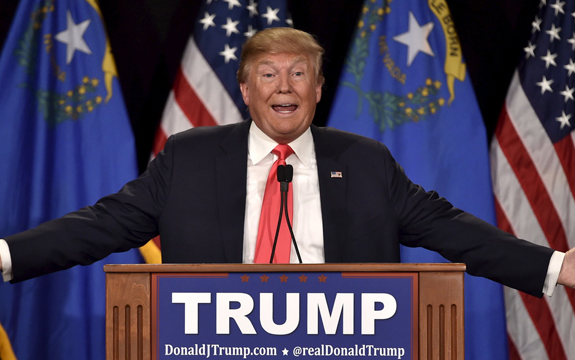As the US presidential primary season begins, does Iowa really matter?

In Summary
- Analysis for The Conversation by Bryan Cranston, Swinburne University of Technology
There has been frenzied speculation as to who will win the Iowa caucus, the first battle of the 2016 US presidential race, on Monday, February 1. But is the attention that Iowa and New Hampshire (home to the campaign’s first primary elections) receive each election cycle warranted?
Can the polls tell us anything?
A January 22 Fox News national poll had Donald Trump leading the Republican field with 34% ahead of Texas senator Ted Cruz on 20%. Another national poll had Trump leading Cruz 36% to 17%.
National polling, however, is becoming increasingly irrelevant in US elections. US public polling models have become outdated and increasingly inaccurate. Public polling is based on models of telephone cold-calling and, increasingly, internet surveys. But voters tend to become more cautious the closer they get to an election, and answering a polling question is very different to casting a ballot.
The November 2015 election for Kentucky governor illustrates how flawed public polling has become. Democrat Jack Conway led Republican Matt Bevin in every poll throughout the campaign. Two separate polls conducted one week before election day had Conway leading by five points. Bevin comfortably won the election by nearly nine points.
Polling company Gallup announced last October that it would not be polling the 2016 primary election at all. It said more public polling is being undertaken than ever before – and polls that consistently deliver inaccurate results are hurting the industry’s reputation.
Polling of Iowa voters is also highly flawed. In the race for the Republican presidential nomination in 2012, Minnesota congresswoman Michele Bachman led the field in Iowa in a June 2011 poll with 22%. But, by November, businessman Herman Cain had replaced Bachman as the frontrunner in Iowa with 21%.
In December 2011, less than one month from the Iowa caucus, former Speaker Newt Gingrich led every national poll.
None of these candidates ended up finishing in the top three in the 2012 Iowa caucus.
This polling inconsistency is not limited to Republicans. Between July 2007 and January 2008, there were 16 polls on Democratic presidential candidates in Iowa. Hillary Clinton led every single poll up to the day of the 2008 Iowa caucus by an average of 15 points. Barack Obama defeated John Edwards by eight points, with Clinton in third place.
A reliable predictor?
Even if we ignore the polls, can the Iowa caucuses tell us anything about who the eventual presidential nominees will be?
Looking at the last six contested presidential caucuses in Iowa, the Republican winner has gone on to become the party’s nominee only twice.
Iowans are more successful when it comes to picking the eventual Democratic nominee (four of the last six contested primaries). That figure is actually less than it should be – in 1992, one of Iowa’s US senators, Tom Harkin, ran for president. As a “favourite son”, he was expected to win easily. Most of the Democratic candidates chose to forgo an Iowa campaign and concentrate their efforts elsewhere.
So, if we exclude 1992 from the analysis, the eventual Democratic nominee has won Iowa 80% of the time, and 100% of the time over the past three contested primaries.
One week after Iowa is the first primary election of the season in New Hampshire. Looking at the past six contested elections for each party reveals something quite different to Iowa. If recent history is any guide, the Republican winner in New Hampshire has a 67% chance of becoming the nominee; the Democratic winner has a 50% chance of eventual success.
What of 2016?
Cruz and Trump will do well in Iowa. This will not necessarily be as a result of their organisational ability to manage a caucus, but because their politics appeals to Iowa’s form of evangelical conservatism.
Many mainstream establishment Republican candidates – such as Jeb Bush and Marco Rubio – have given up on Iowa to focus on New Hampshire.
Media agencies are fascinated with polls because until there is an election, they have to report something. In the first national poll of 2016, Donald Trump continued to lead the Republican field with 35%, but consider this: two-thirds of Republican and Republican-leaning registered voters who were polled did not support Trump.
Listen to the polling reports about Trump and Cruz in Iowa and New Hampshire, but do not think for one moment that the polls reflect what will happen on election day – or that the result of the Iowa caucus will actually tell us anything about who the eventual Republican nominee might be.
Written by Bryan Cranston, PhD Candidate in Politics, Swinburne University of Technology. This article was originally published on The Conversation. Read the original article.



